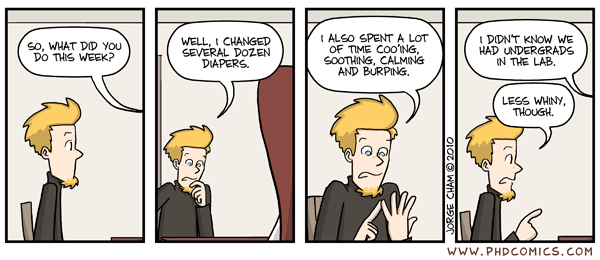PORT-AU-PRINCE, Haiti — The wailing of survivors pierced the air in pockets of this devastated city on Wednesday as people dug desperately through the rubble of collapsed buildings and piled bodies of the dead on roadsides under white sheets.
Huge swaths of the capital, Port-au-Prince, lay in ruins, and thousands of people were feared dead in the rubble of government buildings, foreign aid offices and shantytowns. Limbs protruded from piles of disintegrated concrete, and muffled cries emanated from deep inside the wrecks of buildings, as this impoverished nation struggled to grasp the grim, still unknown toll from its worst earthquake in more than 200 years.
Scenes of destruction defined the city. Concrete homes collapsed on hillsides. Hospitals overflowed with victims. The Canape Vert hospital was surrounded by collapsed buildings.
With the electricity and phone service out and supplies of fresh water dwindling, The United Nations secretary general, Ban Ki-moon, said Haiti was facing a “major humanitarian emergency.” With 14 United Nations peacekeepers confirmed dead and more than 100 workers missing, the organization was in mourning and flying its own flag at half-staff.
When staff members tried to travel by car “they were mobbed by crowds of people,” Mr. McPhun said. “They just want help, and anybody with a car is better off than they are.” Contaminated drinking water is a longstanding and severe problem in Haiti, causing high rates of illness that put many people in the hospital. Providing sanitation and clean water is one of the top priorities for aid organizations, to try to avert outbreaks of dysentery.Some roads had been torn apart in the quake or were blocked by debris, making it more difficult to transport fresh water, food and first aid supplies, and hospitals were overwhelmed by the injured. In a place where there are constant blackouts, the electricity remained out during the early hours Wednesday, and telephones were not working.
More than 30 significant aftershocks of a 4.5 magnitude or higher rattled Haiti through the night and into the early morning, according to Amy Vaughan, a geophysicist with the United States Geological Survey. “We’ve seen a lot of shaking still happening,” she said.
Bob Poff, a Salvation Army official, said in a written account posted on the Salvation Army’s Web site how he had loaded injured victims — “older, scared, bleeding and terrified” — into the back of his truck and set off in search of help. In two hours, he managed to travel less than a mile, he said.
The account described how Mr. Poff and hundreds of neighbors spent the night outside, in the playground near a children’s home run by the group. Every tremor sent ripples of fear through the survivors, providing “another reminder that we are not yet finished with this calamity,” he wrote.
“And when it comes, all of the people cry out and the children are terrified,” he wrote.
Louise Ivers, the clinical director of the aid group Partners in Health, said in an e-mail to her colleagues: “Port-au-Prince is devastated, lot of deaths. SOS. SOS . . . Temporary field hospital by us at UNDP needs supplies, pain meds, bandages. Please help us.”
A hospital collapsed in Pétionville, a hillside district in Port-au-Prince that is home to many diplomats and wealthy Haitians, a videographer for The Associated Press said. Photos from Haiti on Wednesday showed a hillside scraped nearly bare of its houses, which had tumbled into the ravine below.
Immigration officials at the Port-au-Prince airport refused to allow incoming journalists into the terminal, fearing that it could collapse; instead they were taken a side exit of the airport, where taxis began showing up late Wednesday morning.
Tequila Minsky, a photographer who was in Port-au-Prince, said a wall at the front of the Hotel Oloffson had fallen, killing a passer-by. A number of nearby buildings had crumbled, trapping people, she said, and a Unibank bank building was badly damaged. People were screaming.
“It was general mayhem,” Ms. Minsky said.
Haiti’s many man-made woes — its dire poverty, political infighting and history of insurrection — have been worsened repeatedly by natural disasters. At the end of 2008, four hurricanes flooded whole towns, knocked out bridges and left a destitute population in even more desperate conditions.
The Haitian president, René Préval, told The Miami Herald that the toll was “unimaginable” and estimated that thousands had died. Among those feared dead were the chief of the United Nations mission in Haiti and Msgr. Joseph Serge Miot, the archbishop of the capital, Port-au-Prince.
The quake struck just before 5 p.m. Tuesday about 10 miles southwest of Port-au-Prince, ravaging the infrastructure of Haiti’s fragile government and destroying some of its most important cultural symbols. The domed white presidential palace and the cathedral collapsed, the Ministry of Justice was destroyed, and the country’s national prison suffered extensive damage, a United Nations spokesman said.
“Parliament has collapsed,” Mr. Préval was quoted as saying. “The tax office has collapsed. Schools have collapsed. Hospitals have collapsed. There are a lot of schools that have a lot of dead people in them.”
“All of the hospitals are packed with people,” he added. “It is a catastrophe.”
The earthquake left the country in a shambles, tangling efforts to provide relief to an estimated 3 million people who the International Federation of Red Cross and Red Crescent Societies said had been affected by the quake.
President Obama promised that Haiti would have the “unwavering support” of the United States.
Mr. Obama said United States aid agencies were moving swiftly to get help to Haiti and that search-and-rescue teams were already en route. He described the reports of destruction as “truly heart-wrenching,” made more cruel given Haiti’s long-troubled circumstances. Mr. Obama did not make a specific aid pledge, and administration officials said they were still trying to figure out what the island needed. But he urged Americans to dig into their pockets and to go to the White House’s Web site, www.whitehouse.gov, to find ways to donate money.
“This is a time when we are reminded of the common humanity that we all share,” Mr. Obama said, speaking in the morning in the White House diplomatic reception room with Vice President Joseph R. Biden Jr. at his side.
Aid agencies said they would open their storehouses of food and water inside Haiti, and the World Food Program was flying in nearly 100 tons of ready-to-eat meals and high-energy biscuits from El Salvador. The United Nations said it was freeing up $10 million in emergency relief funds, the European Union pledged $4.4 million, and groups like Doctors Without Borders were setting up clinics in tents and open-air triage centers to treat the injured.
Supplies began filtering in from the Dominican Republic, as charter flights were restarted between Santo Domingo and Port-au-Prince.
But efforts to administer emergency services and distribute food and water were halting, and in some places, seemingly nonexistent. A few S.U.V.’s driven by United Nations personnel plied streets clogged with rubble, pedestrians and other vehicles. Fuel shortages emerged as an immediate concern as motorists sought to find gas stations with functioning fuel pumps.
Hundreds of people camped under the shade of trees in the prime minister’s office compound, while others milled about in open spaces, hesitant to return to their homes after the powerful earthquake that struck Tuesday afternoon, followed by seemingly endless aftershocks.
"This is the worst tragedy I have seen in Haiti in my 54 years," said Lubini Hermano, a driver employed by a hotel in the hills above the capital. The hotel, Villa Creole, was deeply damaged but still a focal point, as doctors tended to a flow of injured people who appeared at its gate.
Some aid groups with offices in Haiti’s capital were also busy searching for their own dead and missing.
Five workers with the United Nations mission in Haiti were killed and more than 100 more missing after the office’s headquarters collapsed in one of the deadliest single days for United Nations employees. The Tunisian head of the group’s Haitian mission, Hedi Annabi, and his deputy were among the missing, said Alain LeRoy, the United Nations peacekeeping chief.
Earlier Wednesday, the French foreign minister, Bernard Kouchner, said in radio interviews that Mr. Annabi had been killed in the collapse.
The Brazilian Army, which has one of the largest peacekeeping presences in Haiti, said that 11 of its soldiers had been killed in the quake and seven had been injured, with seven more unaccounted for.
In addition to the human toll, the heavy damage sustained by Haiti’s presidential palace and the United Nations headquarters were a blow to the two major symbols of authority in the country.
“The palace was like something out of a fairy tale in a country that had nothing,” said Johanna Mendelson Forman, a former adviser to the United Nations mission, who now works at the Center for Strategic and International Studies in Washington. “It had red carpets and gold ropes. It was a symbol of one of the few institutions that works there, and that’s the presidency.”
On Wednesday the palace looked like a collapsed wedding cake, with its column-lined facade crumpled and its white domed roof caving in.
During a driving tour of the capital Wednesday, Bernice Robertson, an analyst with the International Crisis Group, said she saw at least 30 dead bodies, most covered with plastic bags or sheets. She also witnessed heroic recovery efforts. “There are people digging with their hands, searching for people in the rubble,” she said in an interview by Skype. “There was unimaginable destruction.”
Paul McPhun, operations manager for Doctors Without Borders, described scenes of chaos.


























